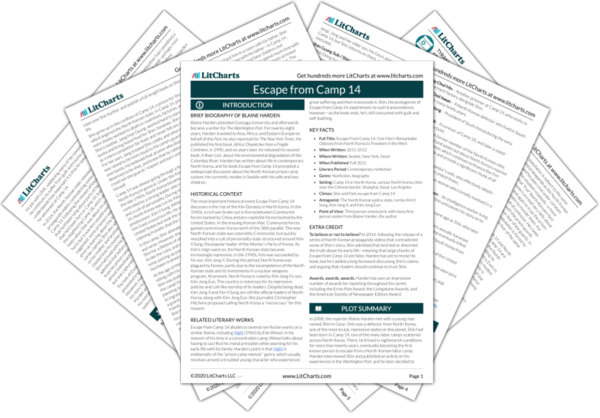LitCharts assigns a color and icon to each theme in Escape from Camp 14, which you can use to track the themes throughout the work.
Tyranny and the North Korean State
Survival, Self-interest, and Morality
Indoctrination and Brainwashing
Activism and Indifference
